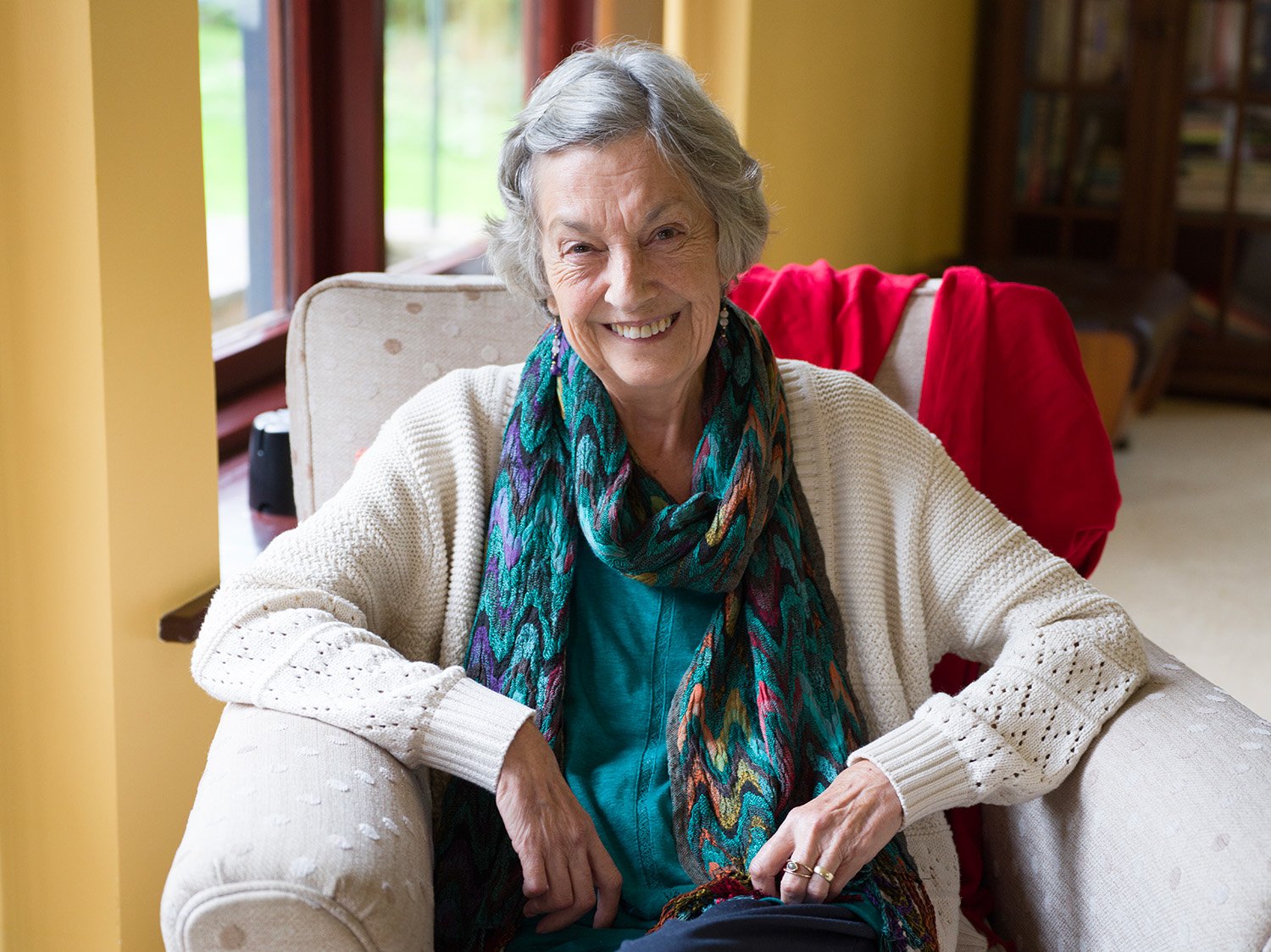What matters most?
Mo
Mo lives with her husband Graham in Llandrindod Wells. They moved to Powys in 1984, running a small printing business initially and raising their son. The couple moved closer to town in 2000 and Mo then worked at the local Primary school offering after-school and holiday clubs. It fitted their lives perfectly.
“I retired about 10 years ago. We moved to a bungalow and we were developing the garden, we just plodded along. 5 years ago, in 2018 I was diagnosed with breast cancer. I had a lumpectomy and radiotherapy, I didn't want chemo, because it hadn't spread that much or hadn't spread throughout my body. Things were going okay. Until last year, it came back. They wanted to do a mastectomy, and I knew years ago I didn't, it just isn't what I want. I know what having a mastectomy would be for me, I think I'd have lost the will to live anyway. It just terrifies me.”
“I went down the road of anything other than that. When it came back, I was persuaded to try chemo which did not agree with me. It was in tablet form and was supposed to be one of the weakest forms, less toxic. It just didn't suit me. I was really ill, I lost lots of weight. I had other symptoms I had terrible heartburn and felt sick all the time.” Mo decided to stop treatments and discussed things with her consultant and the breast care nurses. Her care was transferred over to the palliative care team. “I was told about this place, the Bracken Trust, and Janet the palliative care nurse came to see me quite quickly. So since then, it's just been trying to keep as well as I can.”
Mo first discovered the lump whilst showering in March and saw her GP. She was quickly referred to Hereford hospital where she was diagnosed with stage one breast cancer and received surgery to remove the lump on the 1st May. “They had caught it early, it was stage one, but it was a grade three cancer. I recovered and the following year, I got an all-clear, which went on for four years. When it came back, I knew it was pretty bad. That's when I just decided not to have any further aggressive treatment.”
Mo shared many discussions with her husband Graham about her diagnosis and treatment options. They both came to terms with her terminal cancer and what would be best for her and them moving forward. “We had quite in-depth conversations, when I was first diagnosed, and when it came back. He says he agrees with me and I believe him, because he feels better if I'm feeling okay. When I was ill it was awful for him. I don't want him to have lots and lots of horrible memories. He's been really supportive, because he's my carer now… He’s probably hiding certain feelings from me, but we are quite open with each other. I've had a good life. I’ve been very fortunate, in many ways and I've had sadness but if you've got some happiness as well, then I think you should focus on that. Graham knows how I feel, my wishes and my philosophy in life. At the moment, it's okay. I've had what eight months of palliative care and I think the pain levels, the pain management is working.”
The treatments that Mo has faced from the diagnostic tests such as mammograms and biopsies to the surgery and chemotherapy have been very invasive and painful for her and helped her to make her decision with Graham's support to move to palliative care. “When I was having all the treatments and tests it was quite uncomfortable. The core biopsy was horrendous. It's the worst thing I think that I've ever had. It was so painful. I thought why am I putting myself through all this? All it's doing is giving me more pain. I am also thinking about Graham and having to see him drive all these distances and the worry of looking after me at the end. I know it's going to get me in the end and I don't want to be clinging on to straws. The quality of life is far more important than the length as far as I'm concerned. So that's how I feel about it.”













